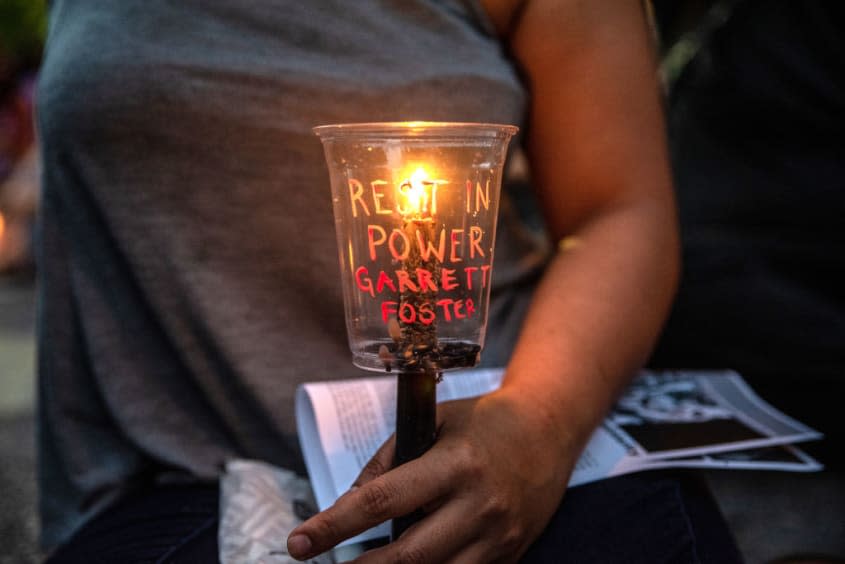Texas man who killed protester sentenced to 25 years as Gov. Abbott's pardon vow lingers

- Oops!Something went wrong.Please try again later.
A Texas state judge on Wednesday sentenced Daniel Perry, 37, to 25 years in prison for killing Garret Foster, 28, during a protest against police brutality in 2020. Perry, a former Army sergeant, shot Foster, an Air Force veteran, several times through the window of his car, which he had driven into the crowd of protesters in Austin. Foster had been legally carrying an AK-47 rifle across his chest, and Perry said in court that Foster had approached his car and raised the gun toward him and he fired in self-defense. Witnesses told the jury that nobody saw Foster point the gun toward Perry or his car.
Foster, who was white, was at the protest to support his common-law wife, Whitney Mitchell, who is Black and wheelchair-bound since all four limbs were partially amputated when she was a teenager, Mitchell testified at Perry's sentencing hearing on Tuesday. She said Foster had been both her husband and caretaker for 11 years before he was shot dead.
Less than 24 hours after a jury convicted Perry of murder in April, Gov. Greg Abbott (R) said on social media that he would pardon him as quickly as possible and urged the Texas Board of Pardons and Paroles, which he appointed, to expeditiously review the case and send him a pardon recommendation to sign. A day later, unsealed court documents showed that Perry regularly shared racist memes in private messages and on social media, and frequently expressed a desire to kill protesters in the months leading up to his confrontation with Foster.
Abbott's office, asked whether the new evidence would change his position on pardoning Perry, shifted responsibility to the parole board, The Texas Tribune reports. The board has begun reviewing Perry's case, but likely won't make any recommendation until all his appeals are exhausted.
Perry's case was championed on conservative radio and TV, and "the issue for the governor is he has painted himself into a corner," University of Houston political scientist Brandon Rottinghaus tells The Washington Post. "There has always been a perception among the far right that he's not committed to the cause. Backing down now may hurt his image." The board of pardons was created in 1920 to take such politics out of the process, moving pardons from the hands of the governor to a panel of legal professionals, he added.
You may also like
MTV News shutting down after 36 years
Sen. Dianne Feinstein returns to D.C. after extended absence, Democratic tensions
Trump's loss to E. Jean Carroll was likely aided by these 2 blunders in his taped deposition

